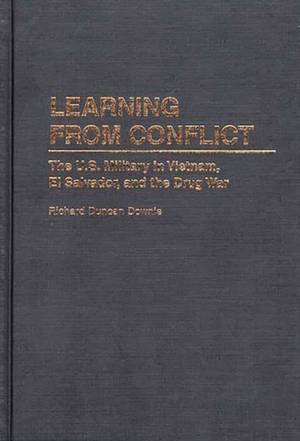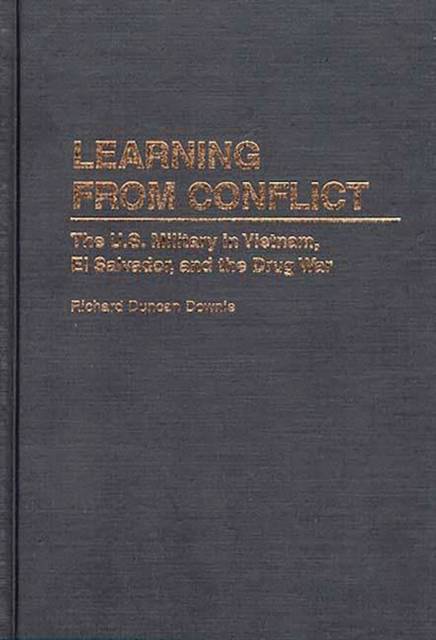
- Afhalen na 1 uur in een winkel met voorraad
- Gratis thuislevering in België vanaf € 30
- Ruim aanbod met 7 miljoen producten
- Afhalen na 1 uur in een winkel met voorraad
- Gratis thuislevering in België vanaf € 30
- Ruim aanbod met 7 miljoen producten
Zoeken
Learning from Conflict
The U.S. Military in Vietnam, El Salvador, and the Drug War
Richard Downie
Hardcover | Engels
€ 161,45
+ 322 punten
Omschrijving
Why have militaries so often failed to learn from conflict and war? Why, for example, despite years of unsuccessful counterinsurgency experiences in Vietnam and El Salvador and repeated recommendations from official Army studies, has the U.S. Army not changed its doctrine for counterinsurgency? Writing for scholars as well as military professionals and policymakers, Downie examines the sources of doctrinal change and innovation from a theoretical perspective and derives practical and relevant policy recommendations.
Contrasting with other findings in this field, Downie provides case studies showing that neither external pressure on a military nor institutional recognition of the requirement for doctrinal change is sufficient to explain the process of doctrinal change. A military innovates when it learns, by proceeding through a learning cycle that includes achieving an organizational consensus that permits adoption of new approaches that respond to factors that make existing doctrine deficient. When that process is blocked, militaries are left with outmoded doctrinal approaches that constrain military performance and lead to defeat. This is an important study for military leaders, civilian policymakers, and scholars and researchers dealing with contemporary U.S. military issues.Specificaties
Betrokkenen
- Auteur(s):
- Uitgeverij:
Inhoud
- Aantal bladzijden:
- 312
- Taal:
- Engels
Eigenschappen
- Productcode (EAN):
- 9780275960100
- Verschijningsdatum:
- 18/06/1998
- Uitvoering:
- Hardcover
- Formaat:
- Genaaid
- Afmetingen:
- 162 mm x 241 mm
- Gewicht:
- 653 g

Alleen bij Standaard Boekhandel
+ 322 punten op je klantenkaart van Standaard Boekhandel
Beoordelingen
We publiceren alleen reviews die voldoen aan de voorwaarden voor reviews. Bekijk onze voorwaarden voor reviews.











